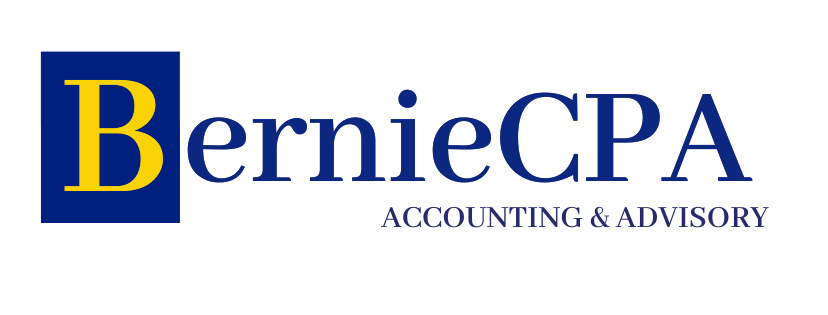Uncovering the Mystery of Beneficial Ownership: What You Need to Know
Beneficial ownership refers to the individuals who ultimately own or control a company or asset, even if their names do not appear on the official documents. This concept is crucial in understanding the true ownership and control of a business, as it helps to uncover the individuals who may be benefiting from the company’s profits and decision-making processes. Beneficial owners can include individuals, entities, or even other companies that have a significant stake in the business. Understanding beneficial ownership is essential for transparency and accountability in the business world, as it helps to prevent illicit activities such as money laundering, tax evasion, and corruption.
In many cases, beneficial ownership can be obscured through complex ownership structures, nominee shareholders, or offshore accounts. This makes it difficult to determine the true owners of a company or asset, leading to potential risks and challenges for regulators, law enforcement, and other stakeholders. However, with the increasing focus on transparency and anti-corruption efforts, there is a growing need to uncover beneficial ownership to ensure that businesses are operating ethically and within the bounds of the law.
The Importance of Beneficial Ownership
Understanding beneficial ownership is crucial for several reasons. Firstly, it helps to prevent illicit activities such as money laundering, tax evasion, and corruption. By knowing who ultimately owns or controls a company, regulators and law enforcement agencies can better identify and investigate suspicious financial activities. This is especially important in today’s globalized economy, where businesses can easily move funds across borders and hide their true ownership through complex structures.
Secondly, beneficial ownership disclosure promotes transparency and accountability in the business world. When stakeholders, including investors, customers, and the public, know who is behind a company, they can make informed decisions about their engagement with that business. This can help to build trust and confidence in the market, as well as deter unethical behavior by company owners and executives.
Overall, understanding beneficial ownership is essential for maintaining the integrity of the financial system and ensuring that businesses operate in a fair and ethical manner. By uncovering the true owners of companies and assets, we can better protect against financial crimes and promote a more transparent and accountable business environment.
Challenges in Determining Beneficial Ownership
Despite its importance, determining beneficial ownership can be a challenging task. One of the main challenges is the use of complex ownership structures and legal entities to obscure the true owners of a company or asset. This can involve the use of nominee shareholders, offshore accounts, and layers of corporate entities to hide beneficial ownership. In some cases, individuals or entities may also use legal loopholes or lax regulatory environments to avoid disclosing their true ownership interests.
Another challenge is the lack of a centralized database or registry for beneficial ownership information. This means that regulators and law enforcement agencies may need to rely on multiple sources of information, which can be time-consuming and resource-intensive. Additionally, the lack of international cooperation and standardization in beneficial ownership disclosure can make it difficult to track down the true owners of companies that operate across borders.
Furthermore, there may be challenges related to data privacy and protection laws that limit the sharing of beneficial ownership information across jurisdictions. This can hinder efforts to uncover hidden ownership interests and prevent financial crimes. Overall, these challenges highlight the need for improved regulatory frameworks and international cooperation to address the complexities of determining beneficial ownership.
Legal and Regulatory Framework for Beneficial Ownership
To address the challenges in determining beneficial ownership, many countries have implemented legal and regulatory frameworks to promote transparency and disclosure. One key development is the implementation of beneficial ownership registries, which require companies to disclose their ultimate owners to government authorities. These registries can help to centralize beneficial ownership information and make it more accessible to regulators and law enforcement agencies.
In addition to registries, many countries have also introduced anti-money laundering (AML) and counter-terrorism financing (CTF) regulations that require businesses to conduct due diligence on their customers and beneficial owners. This includes verifying the identity of beneficial owners and monitoring their financial activities for suspicious behavior. These regulations aim to prevent illicit financial activities by increasing transparency and accountability in the business sector.
Furthermore, international initiatives such as the Financial Action Task Force (FATF) have developed standards and recommendations for beneficial ownership disclosure to promote global cooperation in combating financial crimes. These efforts aim to harmonize beneficial ownership regulations across different jurisdictions and improve information sharing between countries.
Overall, the legal and regulatory framework for beneficial ownership is evolving to address the challenges in uncovering hidden ownership interests and promote transparency in the business world. By implementing beneficial ownership registries and AML/CTF regulations, countries can better prevent financial crimes and protect the integrity of the financial system.
Risks Associated with Hidden Beneficial Ownership
The risks associated with hidden beneficial ownership are significant and can have far-reaching consequences for the financial system and society as a whole. One major risk is the potential for money laundering and other illicit financial activities. When the true owners of a company or asset are hidden, it becomes easier for individuals or entities to use that business for illegal purposes, such as moving illicit funds across borders or evading taxes.
Another risk is the potential for corruption and unethical behavior by company owners and executives. When beneficial ownership is obscured, it becomes more difficult for stakeholders, including investors and customers, to hold businesses accountable for their actions. This can create opportunities for fraud, embezzlement, and other forms of financial misconduct that harm both shareholders and the public.
Furthermore, hidden beneficial ownership can also pose risks to national security by allowing individuals or entities with malicious intent to gain control of strategic assets or sensitive industries. This can have implications for economic stability and geopolitical relations between countries.
Overall, the risks associated with hidden beneficial ownership underscore the importance of uncovering the true owners of companies and assets to prevent financial crimes, promote transparency, and protect national security.
Tools and Strategies for Uncovering Beneficial Ownership
To uncover hidden beneficial ownership, regulators, law enforcement agencies, and other stakeholders can utilize various tools and strategies. One key tool is the use of technology, such as data analytics and artificial intelligence, to analyze large volumes of data and identify patterns that may indicate hidden ownership interests. This can help to uncover complex ownership structures and identify individuals or entities that may be benefiting from a company’s profits.
Another strategy is to enhance international cooperation and information sharing between countries. By working together, regulators and law enforcement agencies can access beneficial ownership information from different jurisdictions and track down individuals or entities that may be hiding their true ownership interests across borders.
Furthermore, public awareness campaigns and whistleblower programs can also play a role in uncovering hidden beneficial ownership. By educating the public about the importance of transparency in business ownership and providing incentives for individuals to report suspicious activities, stakeholders can help to uncover illicit financial activities and hold businesses accountable for their actions.
Overall, by utilizing technology, enhancing international cooperation, and promoting public awareness, stakeholders can improve their ability to uncover hidden beneficial ownership interests and prevent financial crimes.
The Future of Beneficial Ownership Disclosure
The future of beneficial ownership disclosure is likely to involve continued efforts to promote transparency and accountability in the business world. One key development is the increasing use of technology to improve beneficial ownership registries and enhance due diligence processes. By leveraging blockchain technology and other advanced tools, countries can create more secure and accessible registries that make it easier to track down hidden ownership interests.
Furthermore, there is likely to be a greater focus on international cooperation and standardization in beneficial ownership disclosure. As businesses continue to operate across borders, it will be essential for countries to work together to harmonize their regulations and share information more effectively. This can help to prevent individuals or entities from exploiting regulatory gaps in different jurisdictions to hide their true ownership interests.
Additionally, there may be a greater emphasis on public-private partnerships in uncovering hidden beneficial ownership. By collaborating with technology companies, financial institutions, and other stakeholders, regulators and law enforcement agencies can access advanced tools and expertise to improve their ability to identify individuals or entities that may be benefiting from illicit financial activities.
Overall, the future of beneficial ownership disclosure is likely to involve a combination of technological advancements, international cooperation, and public-private partnerships to promote transparency in the business world. By continuing to improve our ability to uncover hidden ownership interests, we can better protect against financial crimes and ensure that businesses operate ethically and within the bounds of the law.


